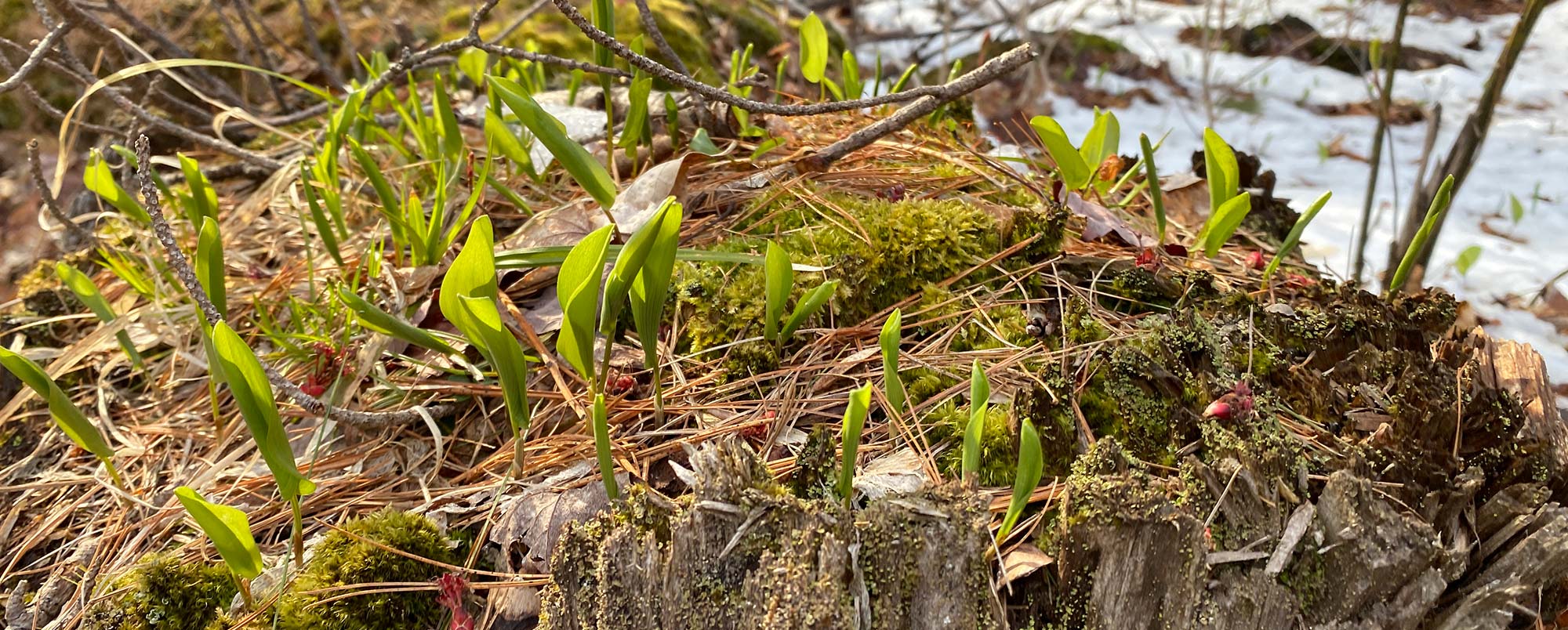
Editors’ Note: We tend to think of forestland as being either publicly owned or privately owned. But tens of thousands of acres in the Northeast fall into the category of “other.” Here, Charley Stevenson, a member of the Timber Owners of New England (TONE), tells us about one such ownership structure.
In 1951, the New England Box Company was reorganized and a portion of its assets were distributed to a minority shareholders group. Nathan Tufts, a businessman conservationist who was general manager of the box company and vice president of the New England Forestry Foundation, persuaded a dozen investors to acquire a sliver of these assets: 2,200 acres, for $19,000. The goal was to create a parcel that was managed in a progressive way – this in contrast to the exploitive high-grading that was still the norm in many places. To help pay for this, he and his partners would offer recreational shares to urban and suburban folks who wanted a place in the country they could call their own.
The initial group formed a corporation called Timber Owners of New England (TONE) to purchase the land. Several years later, the Wildlife Conservation Trust (WCT) was formed as a separate nonprofit membership organization to realize the recreational opportunities on the property. Conservationists, sportsmen, and TONE shareholders were allowed to buy into the trust and get exclusive recreational use of the property.
Now, more than 65 years later, the parcel is still intact and managed in a sustainable way, while scores of families have had a place in the north woods they could consider their own.
Operations are essentially break-even on an annual basis. The combination of timber cuts and usage fees covers the cost of owning the land. Property taxes and insurance costs are part of the WCT budget, paid to TONE as part of the annual license fee. From time to time, profits that TONE collects from the operation allow it to acquire abutting properties.
The TONE land is typical of central New Hampshire: hemlock stands run along the principal brooks, pine plantations dominate certain areas, and large stands of mixed hardwoods at various stages of maturity occupy most of the forest. This is a working forest. In accordance with successive 20-year timber management plans, harvests are conducted when the market is favorable. For more than 40 years, TONE has relied upon foresters from New England Forestry Consultants to generate and oversee these harvest plans. With each timber cut, the board selects an independent contractor to perform the work. Recent harvests have been done with a forwarder and a mechanical harvester to minimize soil impacts. The goals include generating the highest possible return on each stem that is cut, while reestablishing high-value species and creating varied, productive habitat for wildlife.
Currently there are about 55 member families (60 is ideal) in the WCT; each pays about $2,000 per year for membership. Through an online reservation system, members plan stays of up to two weeks at a time in one of five modern houses and one pond cabin on the property. Members can participate in annual work weekends where they split and stack cordwood for the winter and help to maintain the property. They enjoy community events such as shooting weekends at the rifle range or the target clay course. Hiking, swimming, kayaking, cross-country skiing, fly fishing, hunting in season, and just relaxing with family and friends are typical recreational activities. Membership dues and modest usage fees allow for maintenance of the road system, annual stocking of cold-water ponds with trout, and other improvements to the property. A full-time caretaker lives year-round in a sixth home on the property. He looks after the entire property, performing routine and periodic maintenance on the houses and the road system.
Looking into the future, TONE hopes that not much will change. Nathan Tuft’s core values continue to resonate and, if anything, are treasured now even more than they were in the 1950s. TONE continues to actively manage the land, cutting logs from FSC-certified woodlots with minimal impact and modest return, while WCT members enjoy access to a way of life that is harder and harder to find.




Discussion *